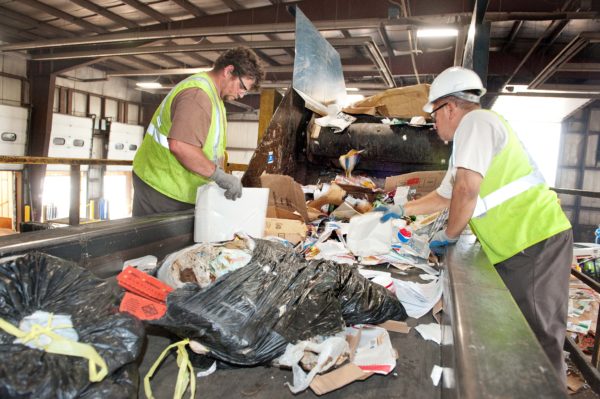
Here’s a term you may have never heard before: “wishcycling.” We’ll use it in a sentence. “Wishcycling has become a huge problem for the recycling industry.” Wishcycling is a catchy phrase that seems to have been coined by the president of a recycling company in Minnesota, and what it means is putting items in your recycling collection because you think they should be accepted and want them to be accepted, even if you don’t know that they are.
Wishcyclers have good intentions. They’re hopeful. They’re positive. They care about the environment. They’re also causing a lot of damage in the recycling industry. So, why is wishcycling so bad?
It adds work and cost to recycling.
Those unacceptable items eventually need to be sorted out of the recycling stream and disposed of as trash. The result is a lose-lose. The recycler ends up wasting his or her time by trying to recycle it and somewhere down the road there is additional work and expense for the processor.

It can muck up the process.
Some items, such as garden hoses, get tangled in sorting equipment, which can cause delays in production and equipment damage.
It damages the marketability.
For recycling to work and be sustainable, the recycling collector, in this case Granger, must be able to sell the material to move it on to the next step in the process. If recycling has too much contamination, it may not be able to be sold or may be sold for far less than the market price.
The good news is, it’s not too difficult to stop wishcycling. Here’s how:
- Carefully review the recycling guidelines specific to your recycling collector and consult these guidelines whenever you’re about to recycle something you’ve never recycled before. Find our drop-off guidelines here or our curbside recycling guidelines here.
- If you’re not sure if an item is accepted after looking at the guidelines, just ask. You can always email us at [email protected] with questions.
- Whenever you can’t get a definitive answer on whether an item is acceptable in your recycling collection, err on the side of caution and throw the item away.
